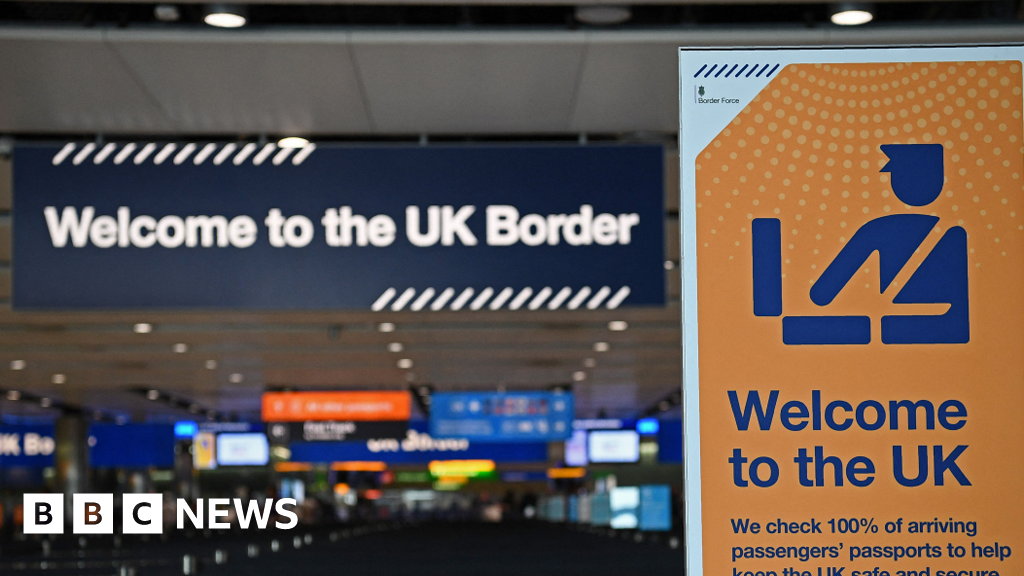Understanding the Impending Visa Restrictions for Certain Nationalities
As nations navigate the complexities of immigration and travel, a significant shift is on the horizon. As governments reassess their immigration policies, visa restrictions are looming for certain nationalities. This change not only affects individuals seeking to travel but also has broader implications for international relations and global mobility.
The Rationale Behind Visa Restrictions
Governments often implement visa restrictions to address various concerns, including:
- Security: Ensuring the safety of citizens is a top priority for any nation. By tightening visa requirements, governments can better control who enters their borders.
- Economic Factors: Countries may wish to protect their labor markets and ensure that local workers are prioritized over foreign labor.
- Political Relations: Visa policies can serve as tools for diplomatic negotiation, with restrictions imposed on countries that do not align with a nation’s foreign policy.
- Public Health: In light of recent global health crises, governments may impose stricter entry requirements to prevent the spread of diseases.
Who Will Be Affected?
The impending visa restrictions are likely to target specific nationalities based on various criteria. Here are the groups that may be affected:
- Countries with High Asylum Applications: Nations that have seen a surge in asylum seekers may face stricter visa policies as governments seek to manage immigration flows.
- Regions with Political Instability: Countries experiencing significant unrest or conflict may be subject to tighter restrictions to control migration.
- Countries with High Crime Rates: Nations perceived as having elevated crime levels may see their citizens facing more stringent entry requirements.
- Health Risk Areas: Countries experiencing outbreaks of infectious diseases may be subjected to additional health-related travel restrictions.
The Impact on Travelers
For travelers from affected nations, these visa restrictions could lead to several challenges:
- Increased Costs: Obtaining visas can often be expensive, with fees associated not only with the application but also with necessary documentation and travel for interviews.
- Longer Processing Times: Stricter visa requirements may lead to longer wait times for visa approvals, complicating travel plans.
- Limited Access to Opportunities: Individuals may find it more difficult to travel for work, study, or family reunification.
- Increased Anxiety: The uncertainty surrounding visa applications can lead to stress and anxiety for those wanting to travel.
Potential Reactions from Affected Countries
The introduction of visa restrictions can provoke various responses from nations whose citizens are impacted. These may include:
- Diplomatic Negotiations: Countries may enter into discussions to renegotiate terms and ease restrictions.
- Reciprocal Measures: Affected nations could respond with their own visa restrictions, leading to a tit-for-tat situation that complicates international travel.
- Public Outcry: Citizens may express frustration or anger at their governments’ inability to prevent the imposition of such restrictions.
- Increased Emigration: Stricter visa policies might encourage individuals to seek opportunities in countries with less restrictive immigration laws.
Long-Term Implications of Visa Restrictions
The long-term implications of visa restrictions can be profound, shaping not only travel patterns but also international relations and global economies. Here are some potential outcomes:
- Economic Isolation: Countries imposing strict visa restrictions may find themselves economically isolated, as they limit the flow of tourists and international business.
- Brain Drain: Stricter immigration policies can lead to a brain drain, where skilled professionals leave their home countries in search of better opportunities abroad.
- Shift in Global Mobility: As some nations become less accessible, travelers may seek out alternative destinations, leading to shifts in global tourism patterns.
- Strengthened Bilateral Relations: Conversely, countries might strengthen ties with nations that share similar immigration philosophies, fostering new alliances.
Conclusion: Navigating a Changing Immigration Landscape
As visa restrictions loom for certain nationalities, the landscape of global travel is poised for significant change. While these policies may address particular concerns for individual nations, they also raise important questions about the future of immigration, international relations, and human mobility.
Travelers, policymakers, and international relations experts must remain vigilant as these changes unfold. Understanding the nuances of these policies will be crucial for navigating the complexities of global mobility in an increasingly interconnected world. Whether you are a traveler planning your next trip or a policymaker considering the implications of these restrictions, being informed is key to adapting to this evolving landscape.










